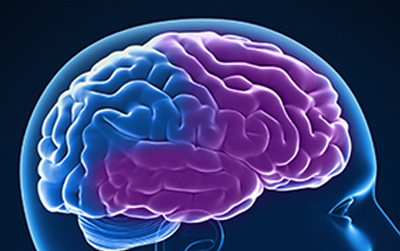Feeling Funny Form 17 Lost My Pep
Frontotemporal dementia (FTD) or frontotemporal degenerations refers to a group of disorders caused by progressive nerve cell loss in the brain's frontal lobes (the areas behind your forehead) or its temporal lobes (the regions behind your ears).
- About
- Causes and risks
- Types
- Treatment
- Diagnosis
About frontotemporal dementia
The nerve cell damage caused by frontotemporal dementia leads to loss of function in these brain regions, which variably cause deterioration in behavior, personality and/or difficulty with producing or comprehending language.
There are a number of different diseases that cause frontotemporal degenerations. The two most prominent are 1) a group of brain disorders involving the protein tau and 2) a group of brain disorders involving the protein called TDP43. For reasons that are not yet known, these two groups have a preference for the frontal and temporal lobes that cause dementia.
The disorders grouped under frontotemporal dementia fall into three subtypes (discussed below).
Frontotemporal dementia used to be called Pick's disease after Arnold Pick, M.D., a physician who in 1892 first described a patient with distinct symptoms affecting language. Some doctors still use the term "Pick's disease." Other terms you may see used to describe frontotemporal dementia include frontotemporal disorders, frontotemporal degenerations and frontal lobe disorders.
Learn more: Frontotemporal Disorders: Information for Patients, Families, and Caregivers (PDF)
Types
Behavior variant frontotemporal dementia (bvFTD) is characterized by prominent changes in personality and behavior that often occur in people in their 50s and 60s, but can develop as early as their 20s or as late as their 80s. In behavior variant frontotemporal dementia, the nerve cell loss is most prominent in areas that control conduct, judgment, empathy and foresight, among other abilities.
Primary progressive aphasia (PPA) is the second major form of frontotemporal degeneration that affects language skills, speaking, writing and comprehension. PPA normally comes on in midlife, before age 65, but can occur in late life also. The two most distinctive forms of PPA have somewhat different symptoms:
- In semantic variant of PPA, individuals lose the ability to understand or formulate words in a spoken sentence.
- In nonfluent/agrammatic variant of PPA, a person's speaking is very hesitant, labored or ungrammatical.
Disturbances of motor (movement or muscle) function include three disorders that are a part of the frontotemporal degeneration spectrum that produce changes in muscle or motor functions with or without behavior (bvFTD) or language (PPA) problems:
- Amyotrophic lateral sclerosis (ALS), which causes muscle weakness or wasting. ALS is a motor neuron disease also known as Lou Gehrig's disease.
- Corticobasal syndrome, which causes arms and legs to become uncoordinated or stiff.
- Progressive supranuclear palsy (PSP), which causes muscle stiffness, difficulty walking and changes in posture. It also affects eye movements.
Both behavior variant frontotemporal dementia and PPA are far less common than Alzheimer's disease in those over age 65 years. However, in the 45 to 65 age range, behavior variant frontotemporal dementia and PPA are nearly as common as younger-onset Alzheimer's. Only rough estimates are available, but there may be 50,000 to 60,000 people with behavior variant frontotemporal dementia and PPA in the United States, the majority of whom are between 45 and 65 years of age.
Key differences between FTD and Alzheimer's
- Age at diagnosis may be an important clue. Most people with FTD are diagnosed in their 40s and early 60s. Alzheimer's, on the other hand, grows more common with increasing age.
- Memory loss tends to be a more prominent symptom in early Alzheimer's than in early FTD, although advanced FTD often causes memory loss in addition to its more characteristic effects on behavior and language.
- Behavior changes are often the first noticeable symptoms in bvFTD, the most common form of FTD. Behavior changes are also common as Alzheimer's progresses, but they tend to occur later in the disease.
- Problems with spatial orientation — for example, getting lost in familiar places — are more common in Alzheimer's than in FTD.
- Problems with speech: Although people with Alzheimer's may have trouble thinking of the right word or remembering names, they tend to have less difficulty making sense when they speak, understanding the speech of others, or reading than those with FTD.
- Hallucinations and delusions are relatively common as Alzheimer's progresses, but relatively uncommon in FTD.
Diagnosis
The diagnosis of behavior variant frontotemporal dementia and PPA are based on expert evaluation by a doctor who is familiar with these disorders. The type of problems experienced by the patient and the results of neurological exams are the core of the diagnosis. Brain scans such as magnetic resonance imaging (MRI) and glucose positron emission scans are very helpful additional tests, but they must be interpreted in the context of the patient's history and neurological exam.
Causes and risks
Frontotemporal degenerations are inherited in about a third of all cases. Genetic counseling and testing are available now in individuals with family histories of frontotemporal degenerations. There are no known risk factors for any frontotemporal degenerations except for a family history or a similar disorder.
Treatment and outcomes
There are no specific treatments for any of the frontotemporal subtypes. There are medications that can reduce agitation, irritability and/or depression. These treatments should be used to help improve quality of life.
Frontotemporal dementia inevitably gets worse over time and the speed of decline differs from person to person. For many years, individuals with frontotemporal dementia show muscle weakness and coordination problems, leaving them needing a wheelchair — or bedbound. These muscle issues can cause problems swallowing, chewing, moving and controlling bladder and/or bowels. Eventually people with frontotemporal degenerations die because of the physical changes that can cause skin, urinary tract and/or lung infections.
Help is available
Source: https://www.alz.org/alzheimers-dementia/what-is-dementia/types-of-dementia/frontotemporal-dementia
0 Response to "Feeling Funny Form 17 Lost My Pep"
Post a Comment